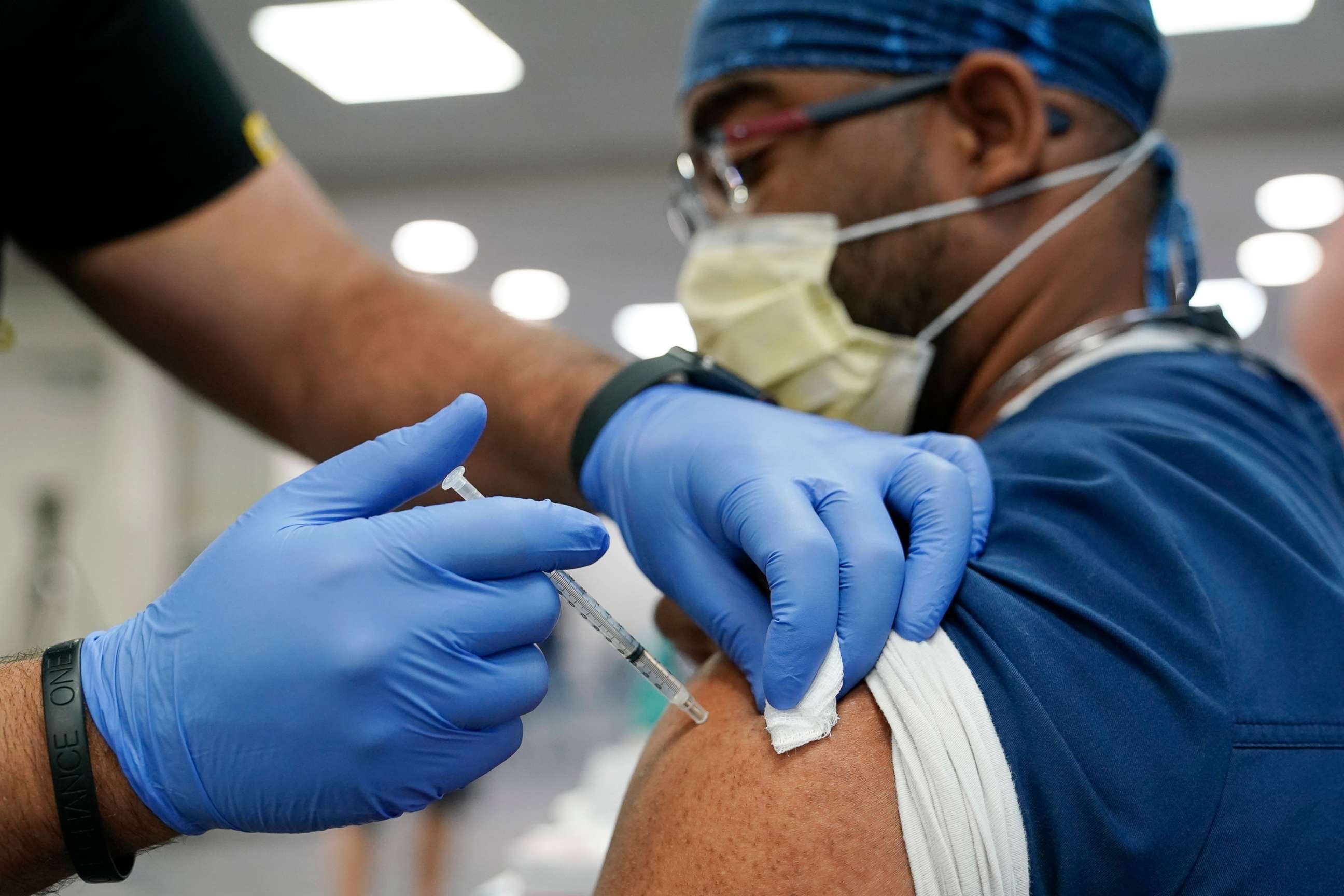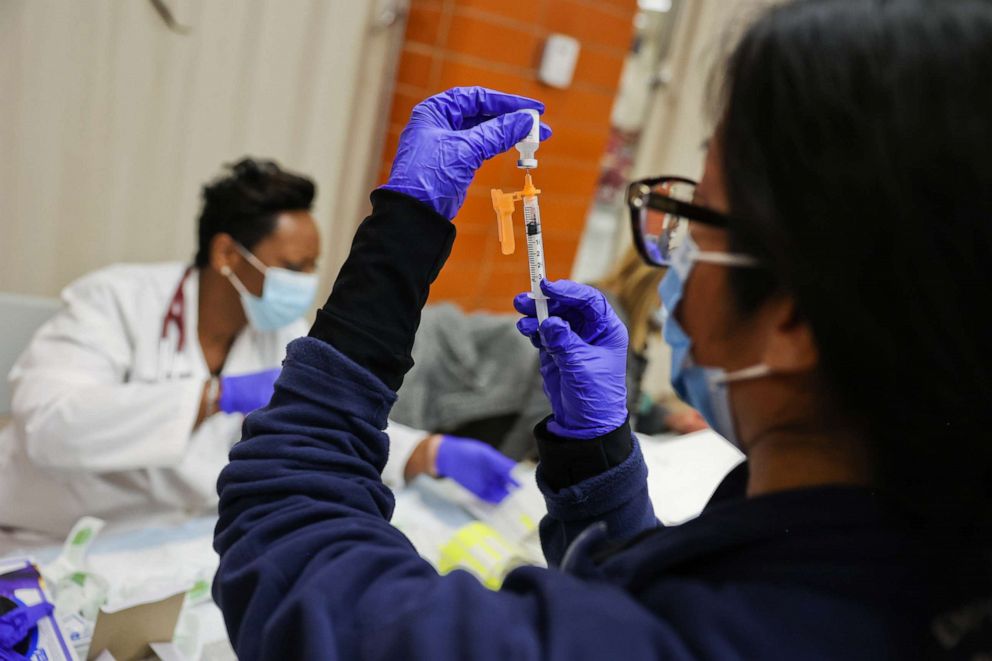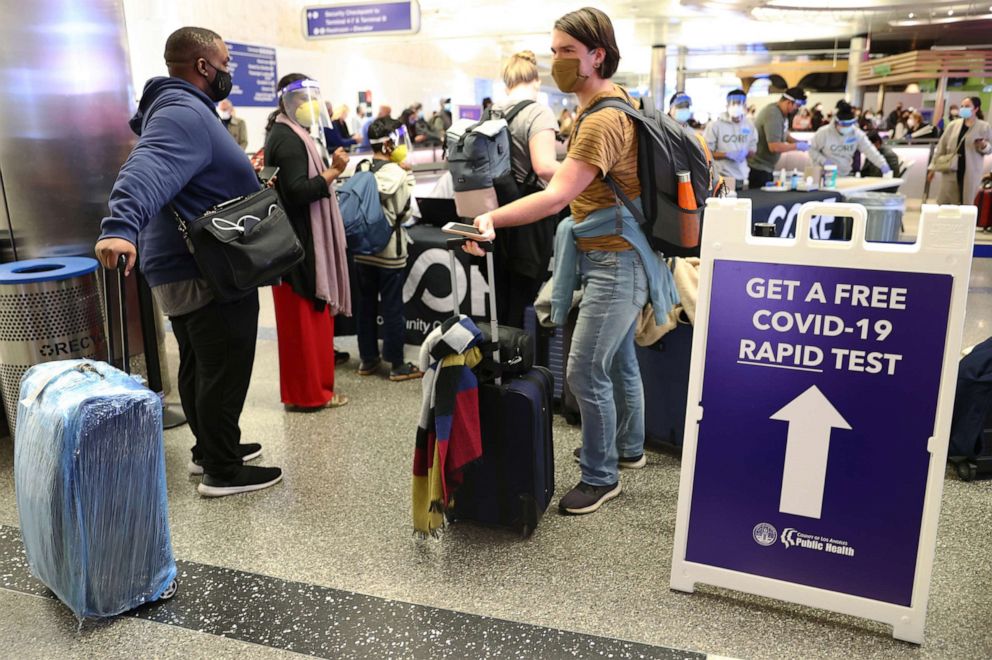New study suggests Pfizer-BioNTech vaccine may only partially protect against omicron variant
Results from an initial laboratory study show that the omicron variant can partially dodge protection from two doses of the COVID-19 vaccine developed by American pharmaceutical company Pfizer and its German partner BioNTech.
The companies announced the findings in a joint press release Wednesday. The study, which was not peer-reviewed, found that omicron likely reduces efficacy of the Pfizer-BioNTech vaccine but does not render it ineffective and that a third dose offers even greater protection against the new variant.
"Although two doses of the vaccine may still offer protection against severe disease caused by the omicron strain, it's clear from these preliminary data that protection is improved with a third dose of our vaccine," Pfizer chairman and CEO Albert Bourla said in a statement Wednesday. "Ensuring as many people as possible are fully vaccinated with the first two dose series and a booster remains the best course of action to prevent the spread of COVID-19."
The study was conducted in a laboratory by exposing a vaccinated individual's blood to omicron to see whether the vaccine would neutralise the variant. Some of the participants included in the study had received two doses of the vaccine, while others had gotten a third booster dose.

For those with two doses of the Pfizer-BioNTech vaccine, researchers found there was a 25-fold less antibody neutralization ability of omicron compared to the original virus variant. But within a month after getting a booster shot, researchers found that antibodies were restored to a high level, even against omicron. Giving a third dose of the vaccine appeared to boost antibody levels 25-fold -- roughly equivalent to a level seen after two doses against the original virus variant.
"Our preliminary, first dataset indicate that a third dose could still offer a sufficient level of protection from disease of any severity caused by the Omicron variant," BioNTech co-founder and CEO Ugur Sahin said in a statement Wednesday. "Broad vaccination and booster campaigns around the world could help us to better protect people everywhere and to get through the winter season. We continue to work on an adapted vaccine which, we believe, will help to induce a high level of protection against Omicron-induced COVID-19 disease as well as a prolonged protection compared to the current vaccine."
The study measured antibody levels, which are only one part of a person's overall protection. The exact percentage of vaccine efficacy against the omicron variant remains unclear.
-ABC News' Sony Salzman






